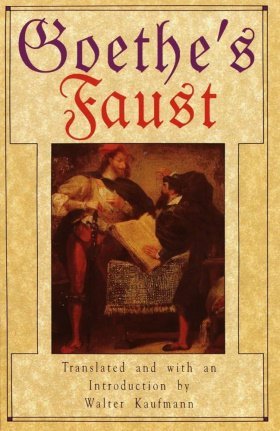By his death-bed I stood.
It was a little better than of dung,
Of mouldy straw; there, as a Christian should,
With many a sin repented on his tongue,
He died.—“Oh! how must I,” he said,
“Myself detest so to throw up my trade,
And my dear wife abandon so!
It kills me with the simple memory, oh!
Might she but now forgive me, ere I die!”
Martha. [weeping]
Good soul! I have forgiven him long ago.
Mephistopheles. [continuing his interrupted narrative]
And yet was she, God knows, much more to blame than I.
Martha.
What! did he lie? on the grave’s brink to lie!
Mephistopheles.
He fabled to the last, be sure,
If I am half a connoisseur.
“In sooth, I had no time to gape,” he said,
“First to get children, then to get them bread,
To clothe them, and to put them to a trade,
From toil and labor I had no release,
And could not even eat my own thin slice in peace.”
Martha.
Can it then be? has he forgotten quite
My fag and drudgery, by day and night?
Mephistopheles.
Not quite! attend the sequel of my tale.
“When last we sailed from Malta”—so he said,
“For wife and children fervently I prayed,
And Heaven then blew a favorable gale.
We came across a Turkish ship that bore
Home bullion to increase the Sultan’s store,
And soon, by valor’s right, were masters
Of all the Infidel piastres;
The precious spoil was shared among the crew,
And I received the part that was my due.”
Martha.
But where and how?—has he then buried it?
Mephistopheles.

























